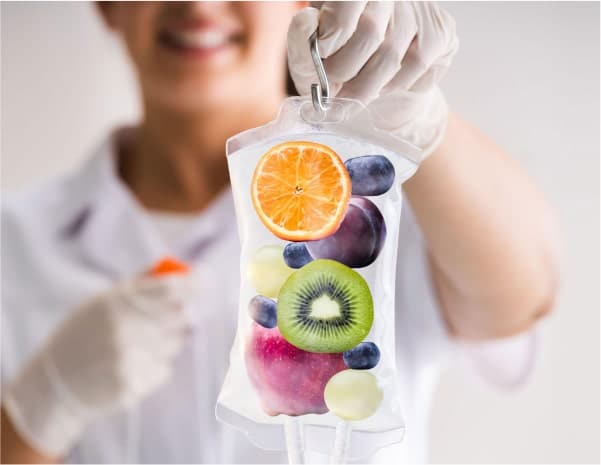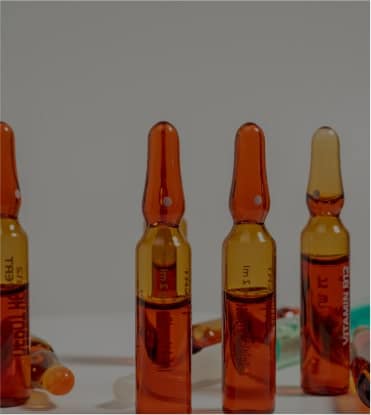Is IV Therapy
Right For You?
IV therapy is an excellent choice for those who want to improve their overall health. It can be used to treat a variety of ailments and conditions, including
- Dehydration
- Fatigue
- Wellness
Benefits of IV Therapy
IV Therapy benefits include increased energy, improved hydration, and faster healing. It can also help improve your mental clarity and reduce stress and anxiety. In addition to these benefits, IV therapy can be used to deliver vitamins, minerals, and other nutrients directly into the bloodstream for maximum absorption that you'll see in your skin, hair, and nails.

Reduce inflammation

Boost Immunity

Reduce Fatigue
Pricing and Treatment Details




FAQs
IV therapy involves the insertion of a needle into a vein to deliver fluids, medications, and other nutrients directly into the bloodstream. When performed by a qualified medical professional, IV therapy is generally considered safe.
The duration of IV therapy varies depending on the patient’s condition and the medication being administered. Generally, IV therapy can last for several hours or even days. However, some medications may only require a short infusion time of a few minutes. Discussing the duration of IV therapy with your healthcare provider is essential so they can tailor the treatment to your specific health needs.
There is always a risk of infection when puncturing the skin, which can lead to more severe complications, including sepsis. In addition, IV therapy can lead to electrolyte imbalances, which can cause severe complications. Therefore, it is important to consult with a medical professional before IV therapy to understand the risks and ensure proper preparation and monitoring during the procedure.
While IV therapy is not a miracle cure for weight loss, it can help with hydration and nutrient absorption, supporting any weight loss efforts. Additionally, some IV therapies offer elements like amino acids and lipotropic agents that can help keep fat burning and improve metabolism. However, it is important to note that IV therapy should be combined with a healthy lifestyle and diet to see optimal weight loss results.
Patients who have a history of severe allergic reactions to certain medications, particularly those used in IV solutions, as well as those who have a history of heart or kidney failure, should not receive IV therapy. Patients with poor vein access or clotting disorders may also not be suitable candidates for IV therapy.
While blood clots are a potential risk associated with any medical intervention that involves puncturing the skin, the risk of developing a blood clot from IV therapy is low.
Nevertheless, monitoring patients carefully during IV administration and looking for signs of clotting, such as pain or swelling in the limb, is essential. In addition, patients at higher risk of developing blood clots, such as those with a history of immobilization, may benefit from preventive measures like compression stockings or medications to reduce clotting risk.
Overusing IV therapy can lead to complications such as infection, vein irritation, inflammation, and clotting. Too much IV therapy can pose a risk and should be avoided to prevent adverse outcomes. IV therapy should be used only when necessary and under medical supervision.







